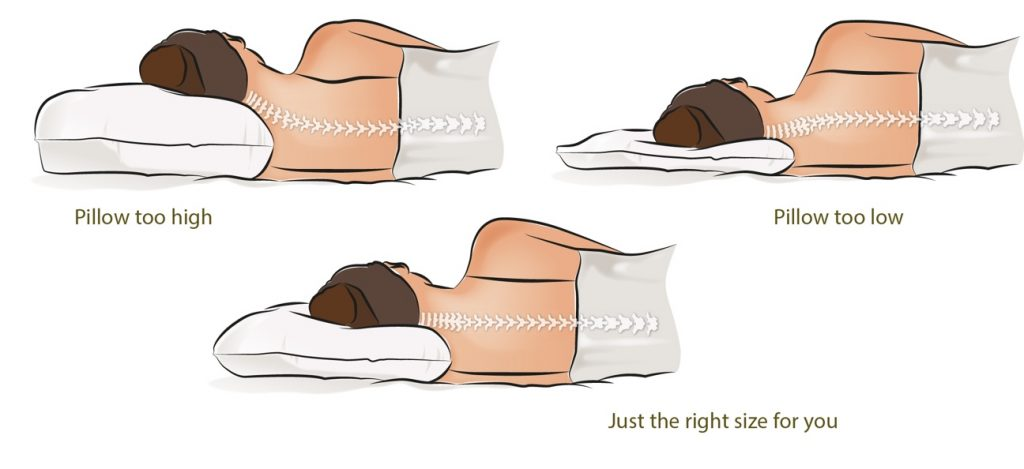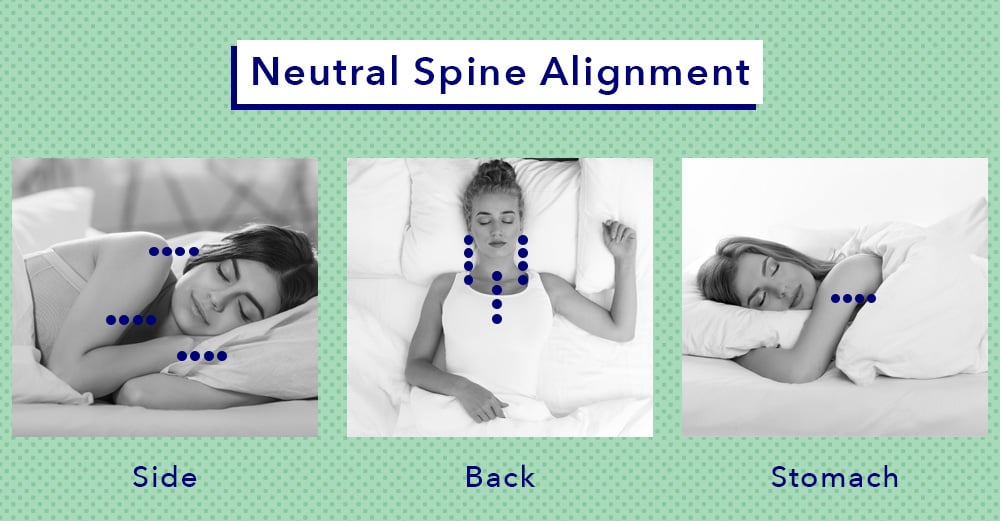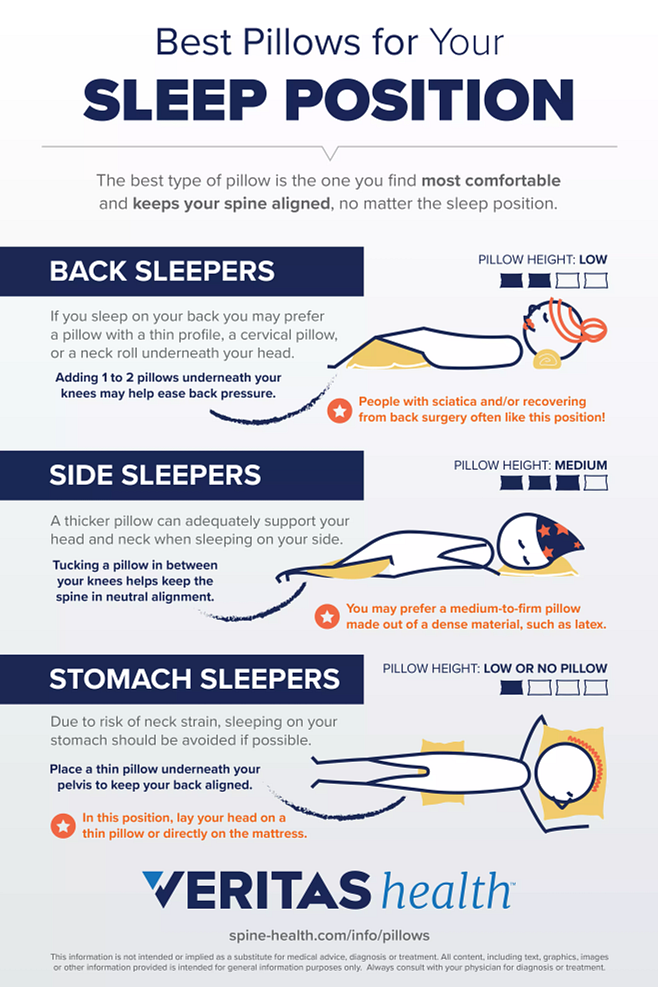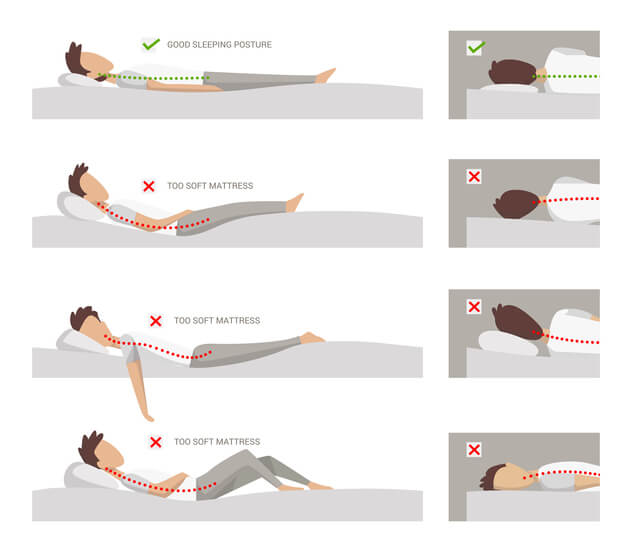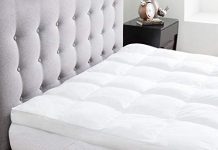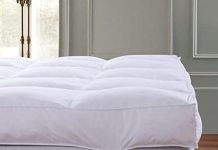Imagine curling up in your cozy bed after a long day, ready to drift off into a blissful sleep. But wait, something feels off – your pillow is too firm, or perhaps too flat. Don’t fret, dear reader, because we’re here to help you choose the perfect pillow that suits your unique sleep style. Whether you prefer to lie on your back, your side, or your stomach, we’ve got the tips and tricks to ensure you wake up feeling refreshed and ready to conquer the world. So, let’s explore the wonderful world of pillows together, and embark on a journey to find the ultimate sleep companion.
Review contents
Different sleep styles
When it comes to getting a good night’s sleep, we all have our own preferences and sleep styles. Whether you’re a side sleeper, back sleeper, stomach sleeper, or even a combination sleeper, choosing the right pillow is crucial to ensure a comfortable and restful sleep. In this article, we will explore the various sleep styles and provide helpful tips on selecting the perfect pillow for each style.
Considerations for pillow selection
Before delving into pillow recommendations for different sleep styles, it’s important to consider several factors that play a significant role in choosing the right pillow. These considerations include support, firmness, material, size, allergies, and temperature regulation. Let’s delve into each of these aspects to fully understand their importance when selecting a pillow.
Support
Support is an essential aspect of choosing a pillow, as it helps maintain proper alignment of our neck and spine while we sleep. A good pillow should offer adequate support to keep our head and neck in a neutral position, preventing any strain or discomfort. Consider pillows that are specifically designed to provide excellent support, especially if you suffer from neck or back pain.
Firmness
The firmness of a pillow refers to how soft or firm it feels beneath your head. Finding the right balance of firmness is essential for a comfortable sleep. Side sleepers often benefit from firmer pillows to keep their spine aligned, while back and stomach sleepers may prefer medium to softer pillows. It’s crucial to strike the right balance to avoid any discomfort or neck strain.
Material
The material used in a pillow can significantly affect your comfort level while sleeping. Different materials offer varying degrees of support, breathability, durability, and hypoallergenic properties. Common pillow materials include memory foam, latex, down, and down alternative. Understanding your preferences and any allergies you may have can help you choose the right pillow material for a restful sleep.
Size
Pillow size is an important consideration, as it determines how well the pillow fits your sleep style and body proportions. Standard-sized pillows are suitable for most sleepers, but if you prefer a larger or smaller pillow, there are options available. It’s essential to select a pillow size that complements your sleep style and offers adequate support and comfort.
Allergies
If you suffer from allergies, choosing a hypoallergenic pillow is crucial to ensure a restful sleep. Hypoallergenic pillows are made with materials that are resistant to allergens such as dust mites, mold, and pet dander. Opting for pillows with removable, washable covers can also help in preventing allergens from accumulating.
Temperature regulation
For those who struggle with overheating during sleep, temperature regulation is an important consideration. Pillows made from breathable materials such as cotton or those with cooling gel inserts can help regulate your body temperature and ensure a cooler and more comfortable sleep.
This image is property of mymanualpt.com.
Choosing the right pillow for side sleepers
Firmness level
Side sleepers often benefit from firmer pillows to maintain proper spinal alignment. A pillow with medium to high firmness can provide the necessary support to prevent your head from sinking too far into the pillow.
Pillow loft
The loft of a pillow refers to its height or thickness. Side sleepers generally need a higher loft to fill the gap between the head and shoulder, ensuring proper alignment. Look for pillows with a higher loft specifically designed for side sleepers.
Material choices
Memory foam and latex pillows are excellent choices for side sleepers, as they contour to the shape of your head and provide optimal support. These materials offer pressure relief, alleviate strain, and ensure a comfortable sleep.
Shape and contour
Side sleepers may find pillows with specific contours or shapes beneficial. Ergonomic pillows with cutouts or curves can provide better support for the neck and shoulders, promoting proper alignment and reducing the risk of waking up with pain or stiffness.
Choosing the right pillow for back sleepers
Medium firmness
Back sleepers generally benefit from pillows that offer a medium level of firmness. This allows the head to sink slightly into the pillow while still maintaining proper support for the neck and spine.
Supportive loft
A pillow with a moderate loft that supports the natural curvature of your neck is ideal for back sleepers. It should neither be too high nor too low, ensuring your neck remains in line with your spine.
Memory foam pillows
Memory foam pillows often conform to the shape of your head and provide excellent support for back sleepers. They offer pressure relief and distribute weight evenly, promoting a comfortable and well-supported sleep.
Cervical pillows
Cervical pillows are specially designed to support the natural curve of your neck. They often have a deeper depression in the center and raised sides, providing optimal neck support for back sleepers.
This image is property of sleepopolis.com.
Choosing the right pillow for stomach sleepers
Soft and thin pillows
Stomach sleepers usually require soft and thin pillows to prevent strain on the neck and spine. The aim is to maintain a more natural alignment without raising the head too high.
Loft height
Stomach sleepers should opt for pillows with a low loft height to avoid excessive pressure on the neck. A thin pillow or even no pillow at all may be the most comfortable option for this sleep style.
Down or down alternative
Pillows filled with down or down alternative are often softer and more malleable, making them suitable for stomach sleepers. They can be adjusted easily to achieve the desired comfort level without placing strain on the neck.
Avoiding neck strain
Stomach sleepers should avoid using pillows that are too thick or firm, as this can lead to neck strain. Opting for a softer and thinner pillow will ensure a more comfortable sleep position and prevent any potential discomfort.
Combination sleepers
Versatile pillows
Combination sleepers, who shift between different sleep positions during the night, require more versatile pillows that can adapt to their changing needs. Look for pillows that offer adjustability and different firmness options.
Adjustable pillows
Pillows with adjustable loft or firmness are ideal for combination sleepers. These pillows allow you to customize your sleep experience by adding or removing filling to achieve the desired comfort level for each sleep position.
Mixed materials
Combination sleepers may benefit from pillows that combine different materials. For example, a pillow with a memory foam core and a down outer layer can offer the perfect blend of support and comfort for this sleep style.
This image is property of veritas.widen.net.
Considering special conditions
Neck pain or stiffness
If you suffer from neck pain or stiffness, selecting the right pillow is crucial for finding relief. Look for pillows that offer excellent support and alignment, such as cervical pillows or memory foam pillows designed for neck pain relief.
Allergies and asthma
People with allergies and asthma should choose hypoallergenic pillows to minimize exposure to common allergens. Look for pillows made with hypoallergenic materials and regularly wash pillow covers to prevent the buildup of allergens.
Pregnancy
Pregnant women often benefit from pillows that provide extra support and promote proper spinal alignment. Pregnancy pillows, body pillows, or pillows designed specifically for expectant mothers can offer comfort and relief during this special time.
Sleep apnea
Sleep apnea sufferers often require special pillows to ensure unobstructed airflow and minimize the severity of apnea episodes. Look for pillows specifically designed for sleep apnea that promote better breathing and provide adequate support for the head, neck, and spine.
Trial period and return policy
Importance of trying out pillows
Selecting the right pillow is not an exact science, and what works for one person may not work for another. It’s crucial to try out different pillows and assess their comfort and support levels before making a final decision.
Return policies
Before purchasing a pillow, check the return policy of the retailer or manufacturer. A generous return policy allows you to return or exchange the pillow if it doesn’t meet your expectations.
Customer reviews
Reading customer reviews can provide valuable insights into the comfort, durability, and overall satisfaction of a particular pillow. Consider the experiences of others to help inform your decision-making process.
This image is property of www.reflexspinalhealth.com.
Maintenance and care
Cleaning instructions
Regularly cleaning your pillow is important for maintaining hygiene and prolonging its lifespan. Follow the manufacturer’s instructions for cleaning, as different pillow materials may require specific care techniques.
Pillow protectors
Using pillow protectors can safeguard your pillow from stains, allergens, and dust mites. These protective covers act as an additional barrier, keeping your pillow clean and fresh for longer.
Fluffing and reshaping
Fluffing and reshaping your pillow regularly helps restore its loft and maintain its shape. Shake and fluff your pillow to redistribute the filling, ensuring consistent support and comfort.
When to replace a pillow
Signs of wear and tear
Over time, pillows can show signs of wear and tear. Look for signs such as flattened areas, lumps, or changes in texture, indicating that the pillow is losing its support and effectiveness.
Loss of support
If your pillow is no longer providing the support and comfort it once did, it may be time to replace it. As pillows age, they can lose their resilience, leading to discomfort and improper alignment.
Hygiene concerns
Pillows accumulate sweat, dead skin cells, and allergens over time. If your pillow has become stained, discolored, or has an unpleasant odor that cannot be eliminated, it’s a clear indication that it needs to be replaced.
Average pillow lifespan
On average, pillows should be replaced every 1 to 2 years, depending on the pillow type and usage. However, if you notice any of the above signs of wear or discomfort, it may be necessary to replace your pillow sooner.
Choosing the right pillow for your sleep style is essential for achieving a restful and rejuvenating sleep experience. By considering factors like support, firmness, material, and size, you can narrow down your options and find the perfect pillow. Additionally, factors such as allergies, temperature regulation, and any specific conditions or preferences you may have should also be taken into account. Remember to try out pillows, consider return policies, and read customer reviews to make an informed decision. With the right pillow, you can wake up feeling refreshed and ready to take on the day!
This image is property of lh6.googleusercontent.com.


